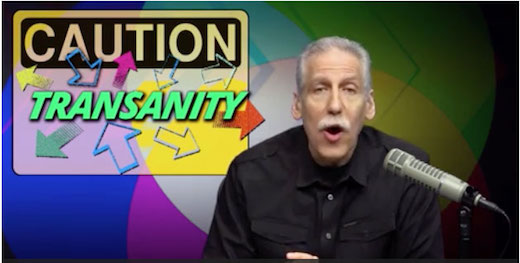You may remember WorldNetDaily columnist Michael Brown is an anti-gay, anti-transgender activist who pretends to have compassion for them while simultaneously mocking them. Well, he’s at it again in his May 7 column, portraying self-proclaimed ex-gays as “the smallest, most rejected minority in our country”:
Their numbers are very small, since they came out of a small community to start with. And it is only a small percentage of that small group who make a break with the rest of the LGBT community.
Most of them make that break because of their religious faith, often newly found. Others make the break simply because they no longer want to identify as gay or bi or trans. But for making that break, they pay a steep price.
They are mocked and maligned and bullied by the community they once called home.
They are told they do not exist. They are assured they will fail. Their motives are questioned. They are called liars and mercenaries. They are even mocked for being so small in number (even if they number in the thousands or tens of thousands, that represents the tiniest slice of the population).
All this simply because they want to lead a new life, because they do not embrace their same-sex attractions (or their gender confusion.)
Shouldn’t they be applauded for their courage? Shouldn’t they be lauded for doing what they feel is right?
Really now, what can possibly be wrong with a man wanting to be married to a woman, having natural children of his own? Why on earth should he be penalized for that?
What can possibly be wrong with a woman wanting to be at home in her own body? Why on earth should she be criticized for that?
And why is it that we put ex-gays and ex-trans individuals under such intense pressure? If they have one slip-up, they’re called phonies. If they still struggle with attractions or gender confusion, they are told they haven’t changed. But why?
Brown then demonstrates how little he understands about sexuality by likening being gay to alcoholism and addiction to pornography: “There are plenty of former alcoholics who fell off the wagon for a season, only to get back on track. Do we ridicule them, or empathize with them and show them compassion? Many of them identify as recovering alcoholics. Why can’t someone identify as a recovering homosexual?
Brown then goes on to reveal his real reason for embracing ex-gays — because they show that sexual preferences aren’t immutable: “That’s why those who say, ‘I used to be gay, but I’m free today’ must be maligned. Their existence must be denied. Their ultimate failure must be assured. If change is possible – again, through divine intervention or through counseling or both – then the whole push for ‘LGBT rights’ can be questioned.”
Which, of course, is the fallacy in Brown’s activism — he seems to not understand that people have the right to be who they are sexually. His implication is that if you can stop being gay, then you must stop being gay. He offers no evidence to support his claim that people who are gay are somehow not “free.”
Brown laments that “the great majority of those who came out of homosexual practice and transgender identification simply want to live their lives,” but he doesn’t understand that the LGBT community want to do the same thing. He cares only that his version of Christianity gets imposed on everyone whether or not it violates their rights to live as they desire.
He concludes by doing more false likening of “homosexual behavior” — a term that denies the existence of sexual orientation — this time to lying, adultery and theft. That tells you how little regard he really has for people who live differently from him.
